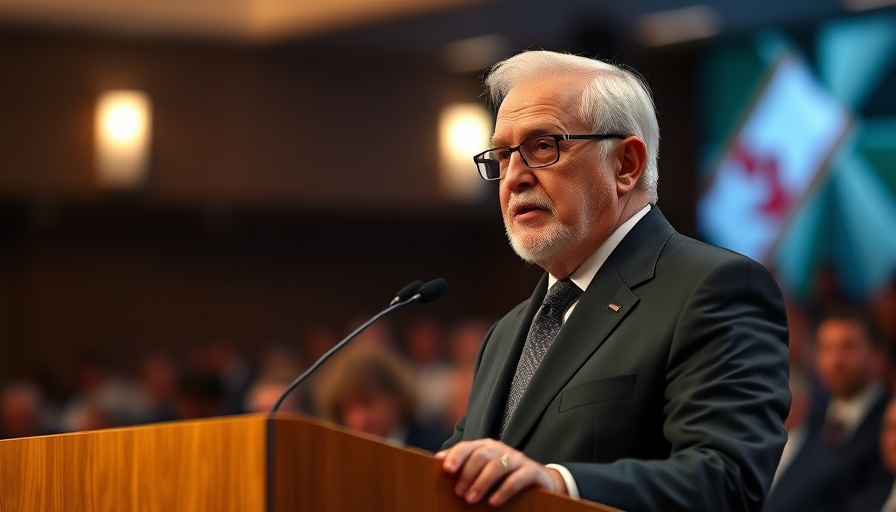
Anticipating Economic Implications of U.S.-South Africa Relations
The engagement between the South African government and the Trump administration stems from significant concerns over trade relations. With the signing of an Executive Order by President Trump, South Africa finds itself at a crossroads that could either foster a new era of cooperation or lead to economic strife. The African Christian Democratic Party (ACDP), under the leadership of Reverend Kenneth Meshoe, has openly supported the government's efforts to send a delegation to address these pressing matters. This dialogue is deemed essential to mitigating adverse ripple effects on South Africa’s already fragile economy.
The Potential Impact on Trade Agreements
Trade agreements, specifically the African Growth and Opportunity Act (AGOA), are crucial for South Africa as they provide duty-free access to the U.S. market. This access not only stimulates local industries but helps sustain jobs and promote economic growth. Reverend Meshoe's call for maturity in handling U.S. relations underlines the urgency of preserving such agreements. A lapse in communication could jeopardize these benefits and affect various sectors reliant on exports to the United States.
Historical Context of South African-U.S. Trade Relations
Historically, South Africa has maintained complex yet cooperative ties with the U.S., particularly post-apartheid. The AGOA initiative, launched in 2000, was a milestone that allowed South Africa to tap into the American market. However, recent decisions and statements from the Trump administration have raised the stakes significantly. Understanding the evolution of this relationship highlights the challenges that lie ahead and reinforces the importance of timely engagement.
Responses from Political Leaders and Implications
Reverend Meshoe's statements reflect a broader sentiment among South African leaders regarding the imminent negotiations. The potential for political backlash is palpable; leaders must tread the line between national interests and the political landscape influenced by external forces, such as Trump's unpredictable policies. As sentiments in South Africa lean toward a cautious optimism, the pressure on the government to deliver tangible outcomes from these discussions will intensify.
Refugee Status and Social Ramifications
One notable aspect of Trump's recent orders is the consideration of refugee status for the Afrikaner community in South Africa. This social element adds a layer of complexity to the trade discussions as it intertwines issues regarding human rights and economic considerations. South Africa's approach to the fears and concerns of the Afrikaner minority needs to be reconciled with its broader economic strategy, creating a challenging dynamic that requires careful navigation.
Future Predictions: Navigating Uncertain Waters
The relationship between South Africa and the U.S. is likely to evolve rapidly, influenced heavily by political moves on both sides. While the ACDP emphasizes the need for robust dialogue, the effectiveness of such discussions hinges on the ability of South African leaders to advocate for their interests firmly while also addressing the demands posed by the Trump administration. With national elections looming, the outcomes of these negotiations could significantly influence political capital and public sentiment in South Africa.
Conclusion: Urgency for Active Engagement
As South Africa braces itself for possible challenges stemming from its engagement with the Trump administration, the need for proactive measures becomes even more critical. The ACDP's backing of government negotiations showcases a united front to secure economic stability for the nation. South Africa's economic future hinges on the dialogues ahead, making it imperative for leaders to leverage this opportunity to promote national interests and ensure that trade relations remain mutually beneficial.
 Add Row
Add Row  Add
Add 




Write A Comment